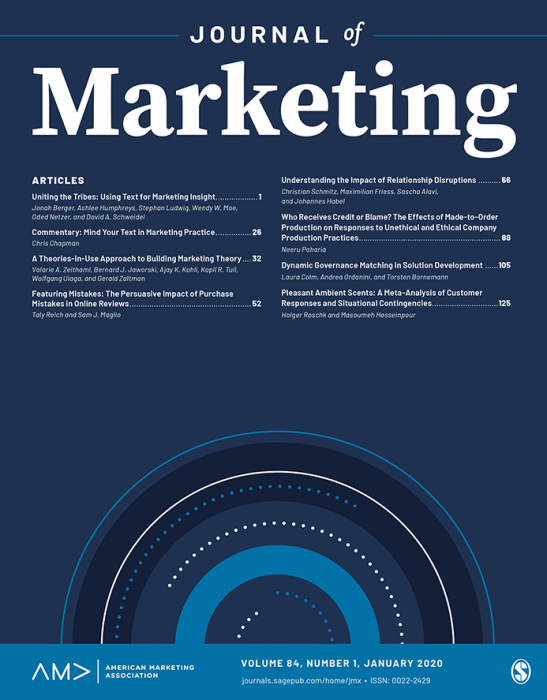快讯:合作创新:平衡战略红利与交易效率
IF 11.5
1区 管理学
Q1 BUSINESS
引用次数: 0
摘要
当企业与其供应商合作时,就能扩大其获取外部专有技术的渠道,从而提高其创新绩效。这种合作很常见,而且被认为会对企业的市场成果产生重大影响。然而,这种合作也使企业面临各种交易风险,包括知识溢出和机会主义。这种权衡影响着企业对市场定位战略的承诺,也影响着企业产生战略红利所需的功能能力。最近的研究表明,对供应商合作的评价并不准确,合作伙伴对这些合作的看法在治理、战略和价值创造等关键问题上并不一致。为了研究这个问题,我们研究了 1985 年至 2016 年期间与供应商合作的高科技原始设备制造商的 202 份正式合作开发合同。借鉴治理价值分析框架,我们展示了企业的合作开发合同、能力和市场定位战略之间的错位是如何显著削弱其创新绩效的。因此,一概而论地选择其中一种或另一种类型的合同是错误的,它们的有效性是取决于企业的市场定位战略和职能能力的偶然结果。我们的论文是迄今为止对治理价值分析框架最全面的测试之一。本文章由计算机程序翻译,如有差异,请以英文原文为准。
EXPRESS: Collaborating to Innovate: Balancing Strategy Dividend and Transactional Efficiencies
When a firm collaborates with its suppliers, it expands its access to external know-how, and thus, can enhance its innovation performance. Such collaborations are common and argued to have significant impact on the firm’s market outcomes. However, such collaborations also expose the firm to various transactional hazards including knowledge spillovers and opportunism. This trade-off looms over the firm’s commitment to a market positioning strategy and the functional capabilities it draws upon to generate its strategy dividend. Recent accounts suggest the verdict on supplier collaborations is noisy and that partner perceptions of these collaborations do not align on key issues of governance, strategy, and value generation. To investigate this, we study 202 formal co-development contracts of high-tech original equipment manufacturers that collaborated with suppliers from 1985 to 2016. Drawing upon the governance value analysis framework, we show how misalignment between the firm’s co-development contracts, capabilities, and market positioning strategy significantly erodes its innovation performance. Thus, blanket prescriptions for one or the other types of contracts are misdirected, their effectiveness being a contingent outcome dependent on the firm’s market positioning strategy and functional capabilities. Our paper presents one of the most complete tests of the governance value analysis framework to date.
求助全文
通过发布文献求助,成功后即可免费获取论文全文。
去求助
来源期刊

Journal of Marketing
BUSINESS-
CiteScore
24.10
自引率
5.40%
发文量
49
期刊介绍:
Founded in 1936,the Journal of Marketing (JM) serves as a premier outlet for substantive research in marketing. JM is dedicated to developing and disseminating knowledge about real-world marketing questions, catering to scholars, educators, managers, policy makers, consumers, and other global societal stakeholders. Over the years,JM has played a crucial role in shaping the content and boundaries of the marketing discipline.
 求助内容:
求助内容: 应助结果提醒方式:
应助结果提醒方式:


